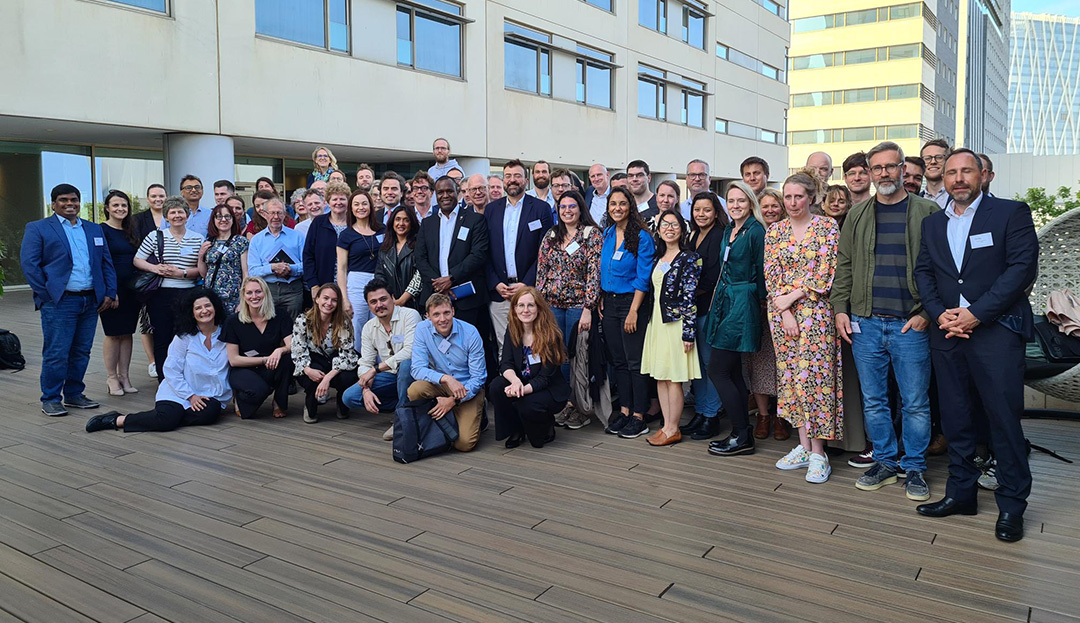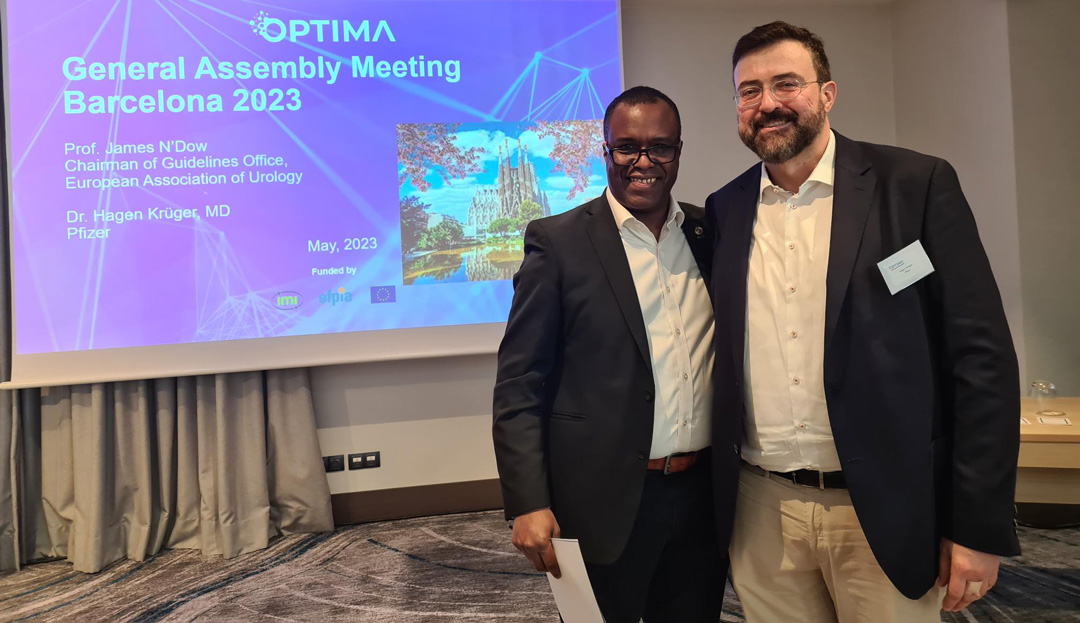Members of the OPTIMA
Consortium
The OPTIMA consortium consist of 38 partners across 14 countries working together in a € 21.3 million public-private research programme seeking to use artificial intelligence (AI) to improve care for patients with prostate, breast and lung cancer.
James N’Dow is Adjunct Secretary General at the European Association of Urology. His research activities span across evidence synthesis, trials, guideline development, implementation science and the use of big data to complement traditional trial data. He has consistently secured significant funding for research totalling over 50 Mio Euro over the past 20 years; including being the Coordinator of two large EU IMI funded big data for better outcomes projects, PIONEER (https://prostate-pioneer.eu/), and OPTIMA researching three solid cancers (Prostate, Breast and Lung cancers).
Hagen Krüger is Senior Medical Director Oncology Germany at Pfizer, Germany and is the private lead of OPTIMA. He has been the Medical Director of Pfizer Oncology in Germany since September 2016. Hagen Krüger studied medicine and pharmacy in Berlin and received his doctorate in medicine. In 2004, he started his career in the pharmaceutical industry in the area of medicine and has successfully worked on the launch of new medicines with a focus on diseases of the nervous system, vaccines and oncology.
AbbVie
AbbVie is a global, research-based biopharmaceutical company focused on developing advanced therapies that address some of the world’s most serious diseases. Our goal is to improve patients’ health and …

Amgen
is committed to unlocking the potential of biology for patients suffering from serious illnesses by discovering, developing, manufacturing and delivering innovative human therapeutics. This …
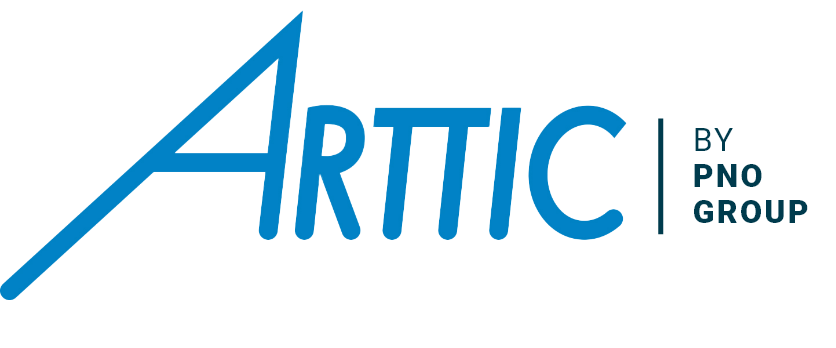
ARTTIC Innovation GmbH
ARTTIC Innovation GmbH, a company of the PNO Consultants Group, the European leader in collaboration engineering, consultancy and management services for international research and technology…

ASSOCIATION EISBM
ASSOCIATION EISBM (EISBM) is a non-profit research association established to foster the development of systems approaches to fundamental biological questions and their…

AstraZeneca
AstraZeneca is a global, science-led biopharmaceutical company that focuses on the discovery, development, and commercialisation of prescription medicines in Oncology, Rare…

Bayer AG
Bayer is a Life Science company with a more than 150-year history and core competencies in the areas of health care and agriculture. Bayer is committed to the principles of sustainable development and…
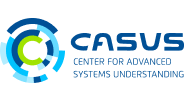
CASUS, Helmholtz-Zentrum Dresden-Rossendorf
The Center for Advanced Systems Understanding (CASUS) at the Helmholtz-Zentrum Dresden-Rossendorf (HZDR) was…

European Association of Urology
The European Association of Urology (EAU) was founded in 1972 and is the leading authority within Europe on urological…
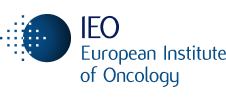
European Institute of Oncology
The European Institute of Oncology (IEO) is a comprehensive cancer center with a strong focus on fundamental cancer research…

European Lung Foundation
In partnership with European Respiratory Society, European Lung Foundation (www.europeanlung.org) brings patients and the public together with healthcare professionals to improve lung health and…
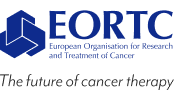
European Organisation for Research and Treatment of Cancer
The EORTC is a non-profit international research organization created under…

European Respiratory Society
The European Respiratory Society (ERS) is an international non-for-profit organisation that brings together physicians, healthcare professionals, scientists and other experts working in respiratory medicine. It is one of…

Erasmus University Medical Center Rotterdam
Erasmus University Medical Center Rotterdam (EMC) is committed to a healthy population and excellence in healthcare…

German Cancer Society
The German Cancer Society includes about 8,000 individual scientific members organized in 25 working groups, 16 regional cancer societies and 36 sponsors from…

GMV Soluciones Globales de Internet SAU
GMV is a multinational company based in Spain, a privately-owned technological business group with an international…

Helios Klinikum Emil von Behring
Helios is Europe’s leading hospital operator, with approximately 120,000 employees. Together with Quirónsalud in Spain and…
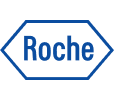
Hoffman-La Roche AG
Roche is a global pioneer in pharmaceuticals and diagnostics focused on advancing science to improve people’s lives. The combined strengths of pharmaceuticals and diagnostics under one roof have made…
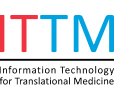
Information Technology for Translational Medicine
ITTM (Information Technology for Translational Medicine) S.A. is a spin-off company of the Luxembourg Centre for…
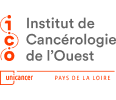
Institut de Cancerologie de l’Ouest
The ICO’s strategy is anchored around 4 areas of development, in order to become an expert reference center for treatment…

Ludwig-Maximilians-University Munich
The Faculty of Medicine and the University Hospital of Ludwig-Maximilians-Universität in Munich (LMU) are among European‘s…

Lund University
Lund University (LU) (www.lu.se) is consistently ranked among the world’s top 100 universities. One of the strategic research areas at the Medical Faculty…

Maastricht University
Maastricht University is a top-ranked international university, renowned for the quality of the research undertaken in many areas and hosts 16.800 students in…
MUTABOR
Founded in 1998 MUTABOR is one of the biggest independent agencies for design and transformation in Germany. At offices in Hamburg and Munich about 170 employees…

Owkin
Owkin is a French-American startup that specialises in AI and Federated Learning for medical research. Owkin’s mission is to connect the global healthcare industry through the safe and responsible use of…

Pfizer
At Pfizer, we apply science and our global resources to bring therapies to people that extend and significantly improve their lives. We strive to set the standard for quality, safety and value in the discovery…

Queen Mary University of London
The Queen Mary University of London (QMUL) is ranked 9th in research quality in the 2014 UK Research Excellence Framework (REF) with its School of Medicine ranked in the top 10 of medical schools in the UK. QMUL has c.150…

Region Uppsala
Region Uppsala has the main responsibility for healthcare for residents of Uppsala County, while at the same time being a national and international center for highly specialised healthcare…
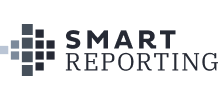
Smart Reporting GmbH
Smart Reporting GmbH is a digital health start-up based in Munich, Germany. Smart Reporting’s products support physicians in generating structured, standardized, and machine-readable medical reports…

The Foundation University Institute for Primary Health Care Research Jordi Gol i Gurina
The Foundation University Institute for Primary Health Care Research Jordi Gol i Gurina (IDIAPJGol) was created…
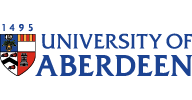
The University Court of the University of Aberdeen
The University of Aberdeen (UoA) was founded in 1495, is Scotland’s third oldest University and is the fifth oldest in the UK…
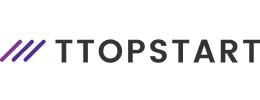
ttopstart
ttopstart is a science and business consulting company that serves leading researchers and innovative companies in the fields of life sciences, medical technology…
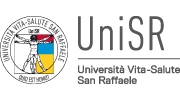
Vita-Salute San Raffaele University
The Vita-Salute San Raffaele University (UniSR) is one of the top-ranking universities in Italy for research and …

University College London / University College London Hospital
UCL / UCLH is one of the UK’s leading biomedical centres. UCLH is major tertiary…

University of Tartu
The University of Tartu (UT, est. 1632) is among leading universities in the Central and Eastern Europe according to several international rankings. With over 14,000 students, 1,500 academic staff and long…

University of Oxford
The University of Oxford has been named for four consecutive years the world’s number one university by the Times Higher…
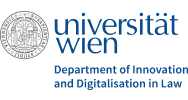
University of Vienna
The University of Vienna is a research university enjoying high international visibility. Its Law Faculty is the oldest and largest legal faculty in the German-speaking world, currently hosting about 10,000…
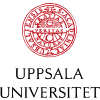
Uppsala University
Uppsala University (UU) is a Swedish university, founded in 1477, that continuously ranks among the top 100 universities in the world. The University’s nearly 5,000 researchers and teachers…

Ydeal
Ydeal is a SME specialized in software solutions for healthcare applications (eHealth), which allows them to deliver individually tailored products to the needs of specific stakeholders, addressing different…
AbbVie
AbbVie is a global, research-based biopharmaceutical company focused on developing advanced therapies that address some of the world’s most serious diseases. Our goal is to improve patients’ health and quality of life – with innovative specialty medicines, focused research and groundbreaking initiatives for patients.
To make an impact on people’s lives, we draw on our deep expertise in some of the most difficult-to-treat diseases and on our understanding of the patient journey to identify opportunities to create better outcomes at every stage.
previous
1 of 38
next

Amgen
Amgen is committed to unlocking the potential of biology for patients suffering from serious illnesses by discovering, developing, manufacturing and delivering innovative human therapeutics. This approach begins by using tools like advanced human genetics to unravel the complexities of disease and understand the fundamentals of human biology. Amgen focuses on areas of high unmet medical need and leverages its expertise to strive for solutions that improve health outcomes and dramatically improve people’s lives.
A biotechnology pioneer since 1980, Amgen has grown to be one of the world’s leading independent biotechnology companies, has reached millions of patients around the world and is developing a pipeline of medicines with breakaway potential.
Amgen Europe was established in 1989 and today comprises more than 5000 employees across 31 countries in Europe, with a headquarter office in Switzerland, employing around 200 industry experts.
In addition, Amgen’s Swiss affiliate is located in the same building and was established shortly after. Today, the Swiss branch employs around 100 staff members.
Over the past four decades, Amgen has launched an extensive portfolio of innovative medicines, with 16 currently marketed in Europe and the industry’s largest collection of modalities, that tackle some of the world’s most serious diseases. We focus on six therapeutic areas: cardiovascular disease, oncology, bone health, neuroscience, nephrology and inflammation.
Our medicines typically address diseases for which there are limited treatment options, or they are medicines that provide a viable option to what is otherwise available. Complementing its range of innovative biologic drugs, Amgen’s biosimilars offer more affordable therapeutic choices for patients in the form of high-quality, reliably supplied medicines and drive value within the healthcare system by building headroom for innovation.
previous
2 of 38
next

ARTTIC Innovation GmbH (ART)
ARTTIC Innovation GmbH, a company of the PNO Consultants Group, the European leader in collaboration engineering, consultancy and management services for international research and technology related partnerships. The team at ART has been built since 2006 and has set up and managed numerous projects in EU funding programmes. Currently, ART is collaborating with multi-national consortia in 28 EU funded projects. ARTTIC Innovation GmbH builds and assists collaborative undertakings and in particular European research consortia and networks from all businesses and research sectors, small and large, private and public, to ensure their collaborative innovation ventures are as successful as possible.
The service offer of ARTTIC Innovation GmbH comprises provision of hands-on support, strategic consulting, and added value services all along the innovation life cycle: from the definition of a project idea and concept, the identification of a suitable funding scheme and the proposal development, to the management of the project and the dissemination and exploitation of the project results.
previous
3 of 38
next

ASSOCIATION EISBM (EISBM)
ASSOCIATION EISBM (EISBM) is a non-profit research association established to foster the development of systems approaches to fundamental biological questions and their application to important medical problems. Systems biology represents a groundbreaking approach to overcome the current limitations of disease complexity and drug discovery. The development of systems biology and medicine will lay the foundation for a prospective medicine that will be predictive, personalised, preventive and participatory (4P-Medicine).
It will enhance patient care and help control escalating health expenditure. The EISBM team brings extensive experience at the interface between biology, informatics, clinical research, statistics, mathematical and computational modelling to this project as it does (or did) in recent FP7- and IMIfunded projects (e.g., PREPARE, MEDALL, SYSCLAD, CASyM, eTRIKS, UBIOPRED, PIONEER).
previous
4 of 38
next

AstraZeneca
AstraZeneca is a global, science-led biopharmaceutical company that focuses on the discovery, development, and commercialisation of prescription medicines in Oncology, Rare Diseases, and BioPharmaceuticals, including Cardiovascular, Renal & Metabolism, and Respiratory & Immunology.
Based in Cambridge, UK, AstraZeneca operates in over 100 countries and its innovative medicines are used by millions of patients worldwide. In oncology, we are leading a revolution with the ambition to provide cures for cancer in every form, following the science to understand cancer and all its complexities to discover, develop and deliver life-changing medicines to patients.
AstraZeneca is a global, science-led biopharmaceutical company that focuses on the discovery, development, and commercialisation of prescription medicines in Oncology, Rare Diseases, and BioPharmaceuticals, including Cardiovascular, Renal & Metabolism, and Respiratory & Immunology. Based in Cambridge, UK, AstraZeneca operates in over 100 countries and its innovative medicines are used by millions of patients worldwide. In oncology, we are leading a revolution with the ambition to provide cures for cancer in every form, following the science to understand cancer and all its complexities to discover, develop and deliver life-changing medicines to patients.
previous
5 of 38
next

Bayer AG
Bayer is a Life Science company with a more than 150-year history and core competencies in the areas of health care and agriculture. Bayer is committed to the principles of sustainable development and to its social and ethical responsibilities as a corporate citizen. With our innovative solutions, we are responding to the global challenges in medical care and the need to safeguard an adequate food supply. We have a global network of research and development sites employing approximately 15,100 researchers.
In 2020 we spent 4,9 billion Euro on research and development. Partnerships are an integral part of our innovation strategy. Therefore we operate in a network of cooperation with start-ups, academic institutes, industry, suppliers and other partners. Our open innovation network covers all divisions along the entire value chain.
- Number of employees end of 2020 (worldwide): 99,538
- Number of employees end of 2020 (Germany only): 24,357
- Annual sales in 2020 (entire group): 41,400 million Euro
previous
6 of 38
next

CASUS, Helmholtz-Zentrum Dresden-Rossendorf (HZDR)
The Center for Advanced Systems Understanding (CASUS) at the Helmholtz-Zentrum Dresden-Rossendorf (HZDR) was founded 2019 in Görlitz/Germany and pursues data-intensive interdisciplinary systems research in such diverse disciplines as earth system research, systems biology or materials research. The goal of CASUS is to create digital images of complex systems of unprecedented fidelity to reality with innovative methods from mathematics, theoretical systems research, simulations as well as data and computer science to give answers to urgent societal questions.
Partners are the HZDR, the Helmholtz Centre for Environmental Research in Leipzig (UFZ)—both members of the Helmholtz Association, the Max Planck Institute for Molecular Cell Biology and Genetics in Dresden (MPI-CBG), the Technical University of Dresden (TUD) and the University of Wrocław. CASUS is funded by the Federal Ministry of Education and Research (BMBF) and the Saxon State Ministry for Science, Culture and Tourism.
previous
7 of 38
next

European Association of Urology (EAU)
The European Association of Urology (EAU) was founded in 1972, and is the leading authority within Europe on urological practice, research, and education. The EAU membership network of over 19,000 members encompasses the whole of Europe and also extends to Asia, Africa, South America and the Middle East. The EAU envisions a Europe where all medical professionals in the field of urology, and its subspecialties, work together with EU citizens to ensure that the highest quality, evidence-based urological care is received by all patients.
The EAU Patient Office ensures that this is achieved in partnership with patient organisations. The EAU’s mission is to disseminate the research of its members and implement an annual European strategy for active engagement with EU institutions, relevant European networks and stakeholders to raise the profile of urology and influence EU policy and legislation that impacts on urologists and their patients based on the latest scientific evidence.
previous
8 of 38
next

European Institute of Oncology (IEO)
The European Institute of Oncology (IEO) is a comprehensive cancer center with a strong focus on fundamental cancer research. The main goal of our Institute is to fill the gap between clinics and research, including basic, translational and clinical research. At IEO basic scientists and clinicians work together to have an integrated scientific workflow.
Our mission is to identify new molecular markers, to develop innovative drugs, thus optimizing therapeutic approaches. An interactive environment is a key feature of IEO; here a strong interaction between clinicians and researchers is a solid reality. IEO may count on an independent academic research as well as on cutting-edge technology.
previous
9 of 38
next

European Lung Foundation (ELF)
In partnership with European Respiratory Society, European Lung Foundation (www.europeanlung.org) brings patients and the public together with healthcare professionals to improve lung health and advance diagnosis, treatment, and care.
ELF’s vision is that people living with lung conditions will be centrally involved in lung healthcare and research and everyone in Europe will have clear, reliable information they can trust about lung health and disease in their own language. ELF works with a network of patient organizations and patient advisory groups to ensure that everything it does has patients at the heart.
previous
10 of 38
next

European Organisation for research and Treatment of Cancer (EORTC)
The EORTC is a non-profit international research organization created under Belgian law in 1962. Since its creation, the EORTC has contributed to improve the survival rates for several types of cancer through translational and clinical research. Over 50 EORTC clinical trials are open to patient recruitment at any given time with over 50,000 patients who are in follow-up, and a quality assured database of more than 180,000 patients. Both multinational and multidisciplinary, the EORTC Network comprises more than 2,830 direct collaborators from all disciplines involved in cancer treatment and research in more than 730 university hospitals in over 48 countries.
The scientific activities of EORTC are strictly peer-reviewed and subject to quality assurance/quality control programs. The EORTC operates on an independent basis, and in this capacity is able to work in partnership with the pharmaceutical industry in evaluating innovative molecules. EORTC has contributed to several success stories in terms of changing clinical practices study and new anti-cancer drug development including registrations by the FDA and the EMA. The EORTC has a proven track record in establishing new clinical standards, e.g. Response Evaluation Criteria In Solid Tumours (RECIST), quality of life of cancer patients, etc.
EORTC works in partnership with various clinical research groups from Europe, America, Asia and Australia. EORTC has collaboration with various patient advocacy groups, cancer leagues, international scientific and professional societies, health organizations and associations, and governmental organizations. The EORTC is organizing several major annual conferences in collaboration with prestigious organisations such the EMA, ESMO and US groups e.g. the National Cancer Institute, the American Association for Cancer Research, the American Society of Clinical Oncology. The EORTC has strong track records of participation in EU funded projects.
The EORTC currently co-leads the Innovative Medicines Initiative projects IMMUcan (Integrated immunoprofiling of large adaptive cancer patient cohorts) and TRISTAN (Validation of translational imaging methods in drug safety assessment). EORTC currently participates in several EU funded projects including IMI2 HARMONY (Healthcare alliance for resourceful medicines offensive against neoplasms in hematology) and in the project IMI PIONEER (Prostate cancer diagnosis and treatment enhancement through the power of big data in Europe).
previous
11 of 38
next

European Respiratory Society (ERS)
The European Respiratory Society (ERS) is an international non-for-profit organisation that brings together physicians, healthcare professionals, scientists and other experts working in respiratory medicine. It is one of the leading medical organisations in the respiratory field, with a growing membership representing over 170 countries. Its mission is to promote respiratory health and to alleviate suffering from respiratory disease.
ERS is involved in promoting scientific research and providing access to high-quality educational resources. It also plays a key role in advocacy – raising awareness of lung disease amongst the public and politicians. The ERS network targets more than 35’000 healthcare professionals in the respiratory fields and its International Congress gathers each year around 20’000 delegates.
previous
12 of 38
next

Erasmus University Medical Center Rotterdam (EMC)
Erasmus University Medical Center Rotterdam (EMC) is committed to a healthy population and excellence in healthcare through research and education (www.erasmusmc.nl). As an academic hospital, Erasmus MC is committed both to achieving a healthy population and to pursuing excellence in healthcare through research and teaching. To this end, we combine fundamental, translational, and clinical research with patient care and a range of teaching activities. The center has broad expertise in various research fields, ranging from fundamental and clinical domains to public health and prevention, with an annual research budget of around €140 million. Erasmus MC holds over 90 projects funded by the European Commission, of which 85 Horizon 2020 projects including collaborations with partners from 56 countries worldwide. Bibliometric indicators place Erasmus MC in the top 20 of clinical medicine worldwide; its publications are cited 1.89 times the world average. In addition to scientific research, patient care and education are core tasks of Erasmus MC.
It is the top referral centre for a region of about five million inhabitants. Erasmus MC is also the largest medical school in the Netherlands, with around 4,500 students and 220 PhD graduates in 2017, and offers BSc, MSc and PhD programs. Together, the students and around 16,500 employees at Erasmus MC improve the individual patient care and public health of tomorrow. In 2017, the European Commission has awarded Erasmus MC the HR Excellence in Research Logo. The Department of Urology is recognised world-wide for its high standard prostate cancer research, as reflected by publications in high impact journals and leading roles in national and international research projects. Besides basic research, the department has an excellent track record in translating research into the clinic. This is established by a multidisciplinary team of clinicians and scientists from different disciplines, facilitating exchange of materials and knowledge, collaborations with industrial partners and ensuring that the major clinical needs are addressed within the departmental prostate cancer research program.
Expertise:
The clinical and experimental aspects of urological malignancies are a central issue within the research program of the Department of Urology, Erasmus MC. The research is concentrated towards identification and characterization of molecular mechanisms responsible for cancer development and progression, improvement of (molecular) diagnostic procedures, aspects of epidemiology and prevention, development of prognostic factors and development of innovative approaches to treatment, especially with respect to cancer derived from the prostate, kidney and urinary bladder. Research related to prostate cancer is most developed at this time. Renowned international studies in the field of prostate cancer that are initiated and lead by Erasmus Mc are the randomized screening study ERSPC (www.erspc.org), and the two active surveillance studies PRIAS ( www.prias-project.org) and Movember GAP-3 (https://gap3.movemberprojects.com/).
Participation in PIONEER ( www.prostate-pioneer.eu) and OPTIMA ( website) enable high level precision medicine. Finally, Erasmus MC Dep. Of Urology has developed the worldwide renowned Rotterdam Prostate Cancer Risk Calculator (RPCRC: www.prostatecancer-riskcalculator.com ) enabling multivariate individual risk predictions that can aid in shared decision making. The RPCRC has been externally tested for performance and usability in different settings with excellent results. the RPCRC is part of the EAU developed prostate cancer screening algorithm for the EU cancer Plan (https://uroweb.org/tag/epad/).
previous
13 of 38
next

German Cancer Society (DKG)
The German Cancer Society includes about 8,000 individual scientific members organized in 25 working groups, 16 regional cancer societies and 36 sponsors from research-based pharmaceutical industries, scientific publishers and health insurances. All our members are active in the research and treatment of cancer with the aim to address our joint goal: the fight against cancer.
The society is not only open to clinical experts of all relevant medical specialties, but also to basic researchers, medical technicians, nurses, psychologists and many other professional groups working in the field of oncology.
previous
14 of 38
next

GMV Soluciones Globales de Internet SAU (GMV)
GMV is a multinational company based in Spain, a privately-owned technological business group with an international presence. Founded in 1984. GMV is present in more than 20 countries where it participates in projects where innovation, high technology and security are needed. In the last 10 years, GMV has attained a leadership position in the Health sector, creating its own products and collaborating with important clients and partners, applying the internal know-how in the development of advanced technological solutions.
One of the key Health business lines developed by GMV is related with the application of big data technology, where GMV is applying the know-how and experience from other sectors (i.e. Space, Security, etc.), with the aim of extract evidences, provide predictive analysis and any other relevant research, clinic, scientific or management aspect.
previous
15 of 38
next

Helios Klinikum Emil von Behring (HC)
Helios is Europe’s leading hospital operator, with approximately 120,000 employees. Together with Quirónsalud in Spain and Latin America, Helios Kliniken in Germany is part of the holding Helios Health. Every year about 20 million patients choose Helios for medical treatment. Helios Germany operates 89 acute care hospitals, about 130 outpatient clinics, six prevention centers and treats approximately 5.2 million patients annually, of whom 4.1 million are outpatients.
Quirónsalud operates 52 hospitals, including six in Latin America, 70 outpatient centers and around 300 occupational risk prevention centers, and treats approximately 15 million patients annually, of whom 14.1 million are outpatients. Helios Germany and Quirónsalud are part of the Fresenius healthcare group.
previous
16 of 38
next

Hoffman-La Roche AG (Roche)
Roche is a global pioneer in pharmaceuticals and diagnostics focused on advancing science to improve people’s lives. The combined strengths of pharmaceuticals and diagnostics under one roof have made Roche the leader in personalized healthcare; a strategy that aims to fit the right treatment to each patient in the best way possible. Roche is the world’s largest biotech company, with truly differentiated medicines in oncology, immunology, infectious diseases, ophthalmology and diseases of the central nervous system. Roche is also the world leader in in vitro diagnostics and tissue-based cancer diagnostics, and a frontrunner in diabetes management. Founded in 1896, Roche continues to search for better ways to prevent, diagnose and treat diseases and make a sustainable contribution to society.
The company also aims to improve patient access to medical innovations by working with all relevant stakeholders. More than thirty medicines developed by Roche are included in the World Health Organization Model Lists of Essential Medicines, among them life-saving antibiotics, antimalarials and cancer medicines. Moreover, for the eleventh consecutive year, Roche has been recognized as one of the most sustainable companies in the Pharmaceuticals Industry by the Dow Jones Sustainability Indices (DJSI). The Roche Group, headquartered in Basel, Switzerland, is active in over 100 countries and in 2018 employed about 94,000 people worldwide.
previous
17 of 38
next

Information Technology for Translational Medicine (ITTM S.A.)
ITTM (Information Technology for Translational Medicine) S.A. is a spin-off company of the Luxembourg Centre for Systems Biomedicine which is specialised in data integration and knowledge management. ITTM offers solutions for improved data quality, data models (e.g., OMOP CDM), system integration & process optimization (incl. hosting of knowledge platforms like tranSMART, Atlas, Arachne or similar). ITTM offers interwoven services in two areas:
(I) Data curation and harmonization for improved data quality, system integration & process, implementation, and development of data analysis pipelines. (II) Secure data hosting, archiving and knowledge platform setup with a focus on Digital Health and mHealth (focus on interoperability) ITTM is actively involved in various ongoing H2020 and IMI projects (TransBioLine, BioMap, ImSAVAR, ImmUniverse, T2Evolve, smart4health, and ICU4COVID).
previous
18 of 38
next

Institut de Cancerologie de l’Ouest (ICO)
The ICO’s strategy is anchored around 4 areas of development, in order to become an expert reference center for treatment co-ordination and cancer health services; a reference center where patients have control over their degree of autonomy during treatment, within the limits of ethical practice, a center where research and innovation are an integral part of our health care practice; an expert center motivated by a managerial policy for efficiency, quality and pertinence.
previous
19 of 38
next

Ludwig-Maximilians-University Munich (LMU)
The Faculty of Medicine and the University Hospital of Ludwig-Maximilians-Universität in Munich (LMU) are among European‘s leading centers of academic medicine. LMU University Hospital is the second largest university hospital in Germany and one or the largest in Europe. Together with its patients and partners it strives for groundbreaking research and treatments in a caring environment. Thanks to its achievements in research, teaching, and patient care, the university ospital enjoys an excellent reputation both nationally and internationally.
Every year, around 500,000 patients trust the competence, care and commitment of our about 11.000 employees in 28 specialized clinics, 13 institutes and 7 departments as well as the 50 interdisciplinary centers. With more than 2,000 beds, the university hospital provides high standards of diagnosis, treatment, and nursing. Outstanding facilities of the LMU University Hospital include the comprehensive cancer center CCC M, Bavaria’s largest transplant center TxM, the German Vertigo and Balance Center, the Institute for Tropical Medicine and the Center for International Health (CIH).
In addition, the LMU University Hospital is represented in all German centers of health research and in the DIFUTURE consortium as part of the medical informatics initiative of the Federal Ministry of Medical Research.
The certified LMU interdisciplinary breast center (Director: Prof. Nadia Harbeck, MD) in the Department of Gynecology and Obstetrics is a member of the Comprehensive Cancer Center CCC Munich and offers all components of modern breast cancer therapy from reliable diagnostics to personalized therapy based on the individual tumor biology under one roof at two locations (Campus City Center and Campus Großhadern) in Munich.
Please visit www.lmu-klinikum.de and www.lmu-brustzentrum.de for more information.
previous
20 of 38
next

Lund University (LU)
Lund University (LU) (www.lu.se) is consistently ranked among the world’s top 100 universities. One of the strategic research areas at the Medical Faculty is cancer research. Skåne University Hospital is associated with LU and our prostate cancer research programme is highly respected on the international arena. The Swedish National cancer registries are also unique compared to most other countries. This platform, together with a long-term tradition of epidemiological research, is very suitable for the current application. LU has received the EU’s certification, HR Excellence in Research. HR Excellence in Research certification means that a higher education institution fulfils many of the stringent EU requirements for a responsible and professional employer, and that it has a commitment to continuous quality management LU have participated in several prostate cancer projects sponsored by the EU.
Biomed II – markers for prostate cancer 1996-1999’. The aim of the project was to validate recently developed diagnostic and 74 prognostic markers and identification of novel markers for prostate cancer using European databases. The FP7 program ProspeR, Prostate cancer profiling and evaluation of non-coding RNA. The aim of the project was to translate the knowledge on non-coding RNAs linked to the aetiology of cancer into novel diagnosis and therapy strategies. The P7-PEOPLE-ITN-2008. Marie Curie project ProNest Prostate Research Organizations- Network of Early-Stage Training. The aim of this project was to support the training and career development of researchers The FP7-PEOPLE-2011-IAPP Marie Curie program Fast-Path, Fast-Tracking Pathology via Automated Image Analysis and High- Performance Computing: Application to Prostate Cancer Diagnostics.
The aim of the project was to develop automated image analyses for high-performance computing to be applied in prostate cancer diagnostics. In most project LU had collaborated with Erasmus MC. Since 2018, LU has been actively involved (Prof Bjartell as deputy coordinator) in the multi-stakeholder international IMI2-Big Data for Better Outcome (BD4BO) program PIONEER; Prostate cancer DIagnOsis and TreatmeNt Enhancement through the power of big data in EuRope (2018 – 2023). An important contribution within PIONEER in terms of their population-based design and long-term follow-up are the large and unique Malmö cohorts; The Malmö Ppreventive Medicine (MPM) and The Malmö Diet and Cancer (MDC). The first study started in 1974 as a primary prevention project. All men in certain birth cohorts (1921-1949), and later on also women, were invited. The participation rate was about 70 percent. A major rescreening was performed during 2002-2006, with about 11,000 men.
Biobank samples and data from questionnaires and investigations from the screenings were collected, in addition the individuals have been followed through local and national registries. Data on genetics, biomarkers and epidemiology and blood samples were collected. The Malmö Diet and Cancer cohort had the initial primary objective to investigate the relationship between diet and subsequent cancer risk in both men and women. About 11,000 men (born 1926-1945) participated in the baseline study 1991-1996 (participation rate 40 percent). About 2,500 men from the baseline did also participate in extensive investigations, including re-screenings. Biobank samples and data from questionnaires and investigations from the screenings were collected, in addition the individuals have been followed through local and national registries. MDCS is part of EPIC – The European Prospective Investigation into Diet and Cancer.
previous
21 of 38
next

Maastricht University (MU)
Maastricht University is a top-ranked international university, renowned for the quality of the research undertaken in many areas and hosts 16.800 students in international BA, MA and graduate programs, and 3.500 (FTE) employees. Researchers at UM work in multidisciplinary teams and in close cooperation with international institutes, business and industry. UM and the University hospital Maastricht (azM) work together under the umbrella organisation Maastricht University Medical Center+ (Maastricht UMC+) and has three mutually reinforcing core tasks: patient care, research, and education and Training: train new generations of doctors and researchers.
The recently (2017) founded Department of Precision Medicine (www.precisionmedicinemaastricht.eu) is an international group of highly motivated researchers with unique skills under the direction of professor Philippe Lambin at the University of Maastricht. The Department of Precision Medicine consists out of The DLab and the M-Lab, both embedded in the Research School GROW (www.grow-um.nl) and the Faculty of Health Medicine and Life Sciences at Maastricht University (www.maastrichtuniversity.nl).
The D-Lab excels at applying machine learning methods, such as deep learning, on vast amounts of medical data in order to improve the lives of patients, with a focus on decision support systems and personalizing treatment.
Its scientists are one of the inventors of “Distributed learning” a revolutionary Big Data approach for health care (watch the animation of a project managed by Prof. Philippe Lambin https://youtu.be/nQpqMIuHyOk ), “Radiomics” (watch the animation https://youtu.be/-raBY_ZyS24) and “multifactorial Decision Support Systems” and have extensive experience in transformation of patient data into clinical tools, translational medicine and subsequent entrepreneurial activities, semantic web technology, ethics involved with personal medical data ownership and utilization and in silico simulation of cancer.
previous
22 of 38
next
MUTABOR
Founded in 1998 MUTABOR is one of the biggest independent agencies for design and transformation in Germany. At offices in Hamburg and Munich about 170 employees work for international clients in more than 12 countries. Next to units for Brand Strategy, Brand Design,
Packaging, Experience Design and Corporate Architecture, MUTABOR Technologies was established in 2018. This unit is developing digital products and services with a strong focus on customer centricity, outstanding UX/UI design and a sustainable impact on the business of the client.
Founded in 1998 MUTABOR is one of the biggest independent agencies for design and transformation in Germany. At offices in Hamburg and Munich about 170 employees work for international clients in more than 12 countries. Next to units for Brand Strategy, Brand Design, Packaging, Experience Design and Corporate Architecture, MUTABOR Technologies was established in 2018. This unit is developing digital products and services with a strong focus on customer centricity, outstanding UX/UI design and a sustainable impact on the business of the client.
previous
23 of 38
next

OWKIN (OWK)
Owkin is a French-American startup that specialises in AI and Federated Learning for medical research. Owkin’s mission is to connect the global healthcare industry through the safe and responsible use of data and application of artificial intelligence, for faster and more effective research. Owkin leverages life science and machine learning expertise to make drug development and clinical trial design more targeted and cost effective.
Owkin applies its cutting-edge machine learning algorithms across a broad network of academic medical centers, creating dynamic models that not only predicts disease evolution and treatment outcomes, but can also be used in clinical trials for enhanced analysis, high-value subgroup identification, development of novel biomarkers, and the creation of both synthetic control arms and surrogate endpoints. The end result? Better treatments for patients, developed faster, and at a lower cost.
previous
24 of 38
next

Pfizer
At Pfizer, we apply science and our global resources to bring therapies to people that extend and significantly improve their lives. We strive to set the standard for quality, safety and value in the discovery, development and manufacture of health care products, including innovative medicines and vaccines. Every day, Pfizer colleagues work across developed and emerging markets to advance wellness, prevention, treatments and cures that challenge the most feared diseases of our time.
Consistent with our responsibility as one of the world’s premier innovative biopharmaceutical companies, we collaborate with health care providers, governments and local communities to support and expand access to reliable, affordable health care around the world. For more than 150 years, we have worked to make a difference for all who rely on us. Pfizer will contribute to the OPTIMA project at both the scientific leadership level as well as the operational level, with contributions anticipated from multiple members of the Pfizer team.
previous
25 of 38
next

Queen Mary University London (QMUL)
Queen Mary University London (QMUL) is ranked 9th in research quality in the 2014 UK Research Excellence Framework (REF) with its School of Medicine ranked in the top 10 of medical schools in the UK. QMUL has c.150 H2020 awards, including a several IMI2 awards.
QMUL has c.150 H2020 awards, including a several IMI2 awards. Its Barts Cancer Research Institute as a Cancer Research UK Centre of Excellence (BCC) is at the forefront of research into screening and early detection of cancer.
previous
26 of 38
next

Region Uppsala (RU)
Region Uppsala works with care, culture, public transport, and regional development. This means coordinating and collaborating with many other stakeholders in areas such as transport infrastructure, business and the labor market, tourism, and public health.
Region Uppsala has the main responsibility for healthcare for residents of Uppsala County, while at the same time being a national and international center for highly specialised healthcare. Region Uppsala works actively to promote health, prevent diseases, and provide basic healthcare to the residents of Uppsala County. At the same time, highly specialised care is provided in many areas, where patients come from all over Sweden and abroad.
One of these highly specialised areas is cancer care. In tandem with providing cutting-edge treatments, Region Uppsala actively engages in research and innovation within the field of cancer care. This involvement in research initiatives contributes to the continual advancement of knowledge, leading to the exploration of novel treatment options and improved therapeutic strategies.
Collaboration forms a key element of Region Uppsala’s strategy, particularly in its partnership with regional cancer centers (RCC), a national support organisation. This collaborative approach ensures a streamlined and standardised delivery of cancer care services in Sweden. RCC are in collaboration with the regions, implementing the intentions of the national cancer strategy, including creating national consensus and coordination of care programmes, quality registers, and drug regimens. By working in tandem with these specialised centers, Region Uppsala strengthens its capacity to provide state-of-the-art care to individuals dealing with cancer.
previous
27 of 38
next

Region Uppsala (RU)
Region Uppsala works with care, culture, public transport, and regional development. This means coordinating and collaborating with many other stakeholders in areas such as transport infrastructure, business and the labor market, tourism, and public health.
Region Uppsala has the main responsibility for healthcare for residents of Uppsala County, while at the same time being a national and international center for highly specialized healthcare. Region Uppsala works actively to promote health, prevent diseases, and provide basic healthcare to the residents of Uppsala County. At the same time, highly specialised care is provided in many areas, where patients come from all over Sweden and abroad.
One of these highly specialized areas is cancer care. In tandem with providing cutting-edge treatments, Region Uppsala actively engages in research and innovation within the field of cancer care. This involvement in research initiatives contributes to the continual advancement of knowledge, leading to the exploration of novel treatment options and improved therapeutic strategies.
Collaboration forms a key element of Region Uppsala’s strategy, particularly in its partnership with regional cancer centers (RCC), a national support organization. This collaborative approach ensures a streamlined and standardized delivery of cancer care services in Sweden. RCC are in collaboration with the regions, implementing the intentions of the national cancer strategy, including creating national consensus and coordination of care programs, quality registers, and drug regimens. By working in tandem with these specialized centers, Region Uppsala strengthens its capacity to provide state-of-the-art care to individuals dealing with cancer.
previous
27 of 38
next

SmartReporting
Smart Reporting GmbH is a digital health start-up based in Munich, Germany. Smart Reporting’s products support physicians in generating structured, standardized, and machine-readable medical reports. Smart Reporting was developed as an open platform and network of physicians and provides optimized reporting templates based on decision trees with pre-specified options.
The templates contain relevant medical classifications and reporting standards of the given pathology. Background information, current guidelines, and examples from medical literature are provided in the specific context. Via a multilingual database and template approach, reports can be used in different languages and translated with a single mouse click.
previous
28 of 38
next

The Foundation University Institute for Primary Health Care Research Jordi Gol i Gurina (IDIAPJGol
The Foundation University Institute for Primary Health Care Research Jordi Gol i Gurina (IDIAPJGol) was created in 1995 as a non-profit organization promoted by the Institut Català de la Salut (Catalan Health Institute, ICS), which is a public entity linked to the Department of Health providing health care in Catalonia (Spain). IDIAPJGol’s main objective is to produce novel and translational information by promoting, developing and managing research in Primary Health Care (PHC) in Spain and to foster training, the dissemination of results and application to the health services. The close collaboration with the Institut Català de la Salut (ICS) facilitates the development of research projects in a wide range of health services.
IDIAPJGol’s potential is based on its uniqueness: it centralizes research and research staff from 328 PHC centers in Catalonia (structured in 8 Research Support Units and 33 accredited and distributed research groups across the territory with more than 1.000 researchers), coordinates the RedIAPP (Research Network on Preventive Activities and Health Promotion-Carlos III Health Institute), participates in other research platforms, and manages the Information System for Research in Primary Care (SIDIAP; www.sidiap.org) database which has allowed the institute to become a referent in the use of real-world data at European level.
previous
29 of 38
next

The University Court of the University of Aberdeen (UoA)
The University of Aberdeen (UoA) was founded in 1495, is Scotland’s third oldest University and is the fifth oldest in the UK. Aberdeen is an international university built on serving one of the most dynamic regions of Europe. With over 13,900 students (over 19% are mature graduates), and over 3,000 staff from more than 120 nationalities, the UoA is at the forefront of teaching and research in medicine, the humanities and sciences. The Institute of Medical Sciences (IMS), where the Academic Urology Unit (AUU) and key staff are located, is the flagship research institution of the University.
The IMS is the largest research institute at the UoA, encompassing 411 researchers (84 principal investigators, 106 post-doctoral scientists and academics, 75 technicians and 140 PhD students). In the last 12 months, staff at the IMS raised more than £30 million in research funding and published 415 peer-reviewed papers. The IMS is housed in dedicated buildings on the Foresterhill Health Campus boasting one of the largest medical campuses in Europe.
previous
30 of 38
next

TTOPSTART (TTOP)
ttopstart is a science and business consulting company that serves leading researchers and innovative companies in the fields of life sciences, medical technology and health. Our professionals have a shared passion for making the complex simple, realising meaningful impact, and pushing through barriers. Our approaches build upon proven and tailored consulting methods and a deep understanding of the sector. It is our goal to accelerate the introduction of impactful innovations. ttopstart consists of a team of creative, ambitious professionals who combine knowledge of science with commercial skills.
Our passions include health and wellbeing, learning and growing, performance and leadership. ttopstart’s programme leadership department is involved in the coordination of horizon 2020 and horizon Europe project, with a focus on sustainability and engagement. To drive durable innovations in life sciences and healthcare we look beyond the boundaries of a project. We focus on connecting multiple projects simultaneously and have the long-term vision in mind for the choices and plans that are being made today.
previous
31 of 38
next

Vita-Salute San Raffaele University (UniSR)
previous
32 of 38
next

University College London / University College London Hospital (UCL)
UCL / UCLH is one of the UK’s leading biomedical centres. UCLH is major tertiary teaching hospital in London with one of Europe’s largest Cancer Centres. UCL is one of the top 10 universities in the world and leads the UK in research strength.
previous
33 of 38
next

University of Tartu (TU)
The University of Tartu (UT, est. 1632) is among leading universities in the Central and Eastern Europe according to several international rankings. With over 14,000 students, 1,500 academic staff and long history as a classical university, it is the main powerhouse of research in Estonia. The Estonian Biobank of the University of Tartu is one of the leading international population based biobanks established already in 2000 after passing a national gene research act in Estonia, the first of a kind.
For the OPTIMA consortium UT brings in the health and genetic data cohort from the biobank representing data about 0,2 million people, as well as the competencies in the fields of artificial intelligence and health data analytics from the Institute of Computer Science.
previous
34 of 38
next

University of Oxford – Centre for Statistics in Medicine (UOXF)
The University of Oxford has been named for four consecutive years the world’s number one university by the Times Higher Education World University Rankings. Researchers across Oxford are at the forefront of global efforts to understand, prevent, and treat many health problems including cancer. The Center for Statistics in Medicine (CSM), NDORMS hosts Prof Prieto Alhambra’s research group. CSM supports medical research from many therapeutic areas. The group led by Prof D Prieto-Alhambra is focused on the generation of real world evidence for disease characterization, prediction modelling, and causal inference.
The group leverages routinely collected data from a number of sources, including electronic medical records, national audits, biobanks, registries, and patient-reported outcomes. CSM is heavily involved in the European Health Data and Evidence Network (www.ehden.eu) project. Prof Prieto-Alhambra is the Research Coordinator for the EHDEN project. EHDEN is a flagship IMI project that aims to generate and validate a network of real world data partners and ecosystem from across Europe. EHDEN has so far mapped (or is in the process of mapping) health data for over 200 million people from 16 countries in Europe.
previous
35 of 38
next

University of Vienna (UNIVIE)
The University of Vienna is a research university enjoying high international visibility. Its Law Faculty is the oldest and largest legal faculty in the German-speaking world, currently hosting about 10,000 students and 600 employees. The Department of Innovation and Digitalisation in Law was founded in October 2017, as a part of the Vienna School of Law, to deal with emerging legal questions surrounding IT/IP law from a European perspective, with an emphasis on data protection and data security law.
From the start, one important focus has been the participation in third-party funded legal research, especially, EU-funded projects. The Department is continually growing both in size and in research along with the new and developing technologies which invariably require legal and ethical input.
previous
36 of 38
next

Uppsala University (UU)
Uppsala University (UU) is a Swedish university, founded in 1477, that continuously ranks among the top 100 universities in the world. The University’s nearly 5,000 researchers and teachers conduct world-leading research and offer a vast number of courses. UU stands out for its multiple areas of academic strength in which research, education and collaboration are integrally connected. Among the University’s alumni are 15 Nobel Prize winners, of which 8 received their prizes for discoveries made during their time at Uppsala University.
Carl Linnaeus, Anders Celsius and Olof Rudbeck the Elder are a few examples of prominent scientists in Uppsala University’s history, demonstrating the research excellence of this university. The Department of Immunology, Genetics and Pathology (IGP) has 50 research groups and more than 370 employees. IGP performs world-class research on preclinical, translational and clinical aspects of cancer. IGP also hosts the national research infrastructure for biobanks, Biobank Sweden.
previous
37 of 38
next

Ydeal
Ydeal is a SME specialized in software solutions for healthcare applications (eHealth), which allows them to deliver individually tailored products to the needs of specific stakeholders, addressing different user groups, namely made-to-measure projects for national health services, enterprises, healthcare professionals and patients. Ydeal has a strong portfolio of software development in the field of prostate cancer, such as the Rotterdam Prostate Cancer Risk Calculator and PRIAS (Prostate Cancer Research International Active Surveillance), an online platform where doctors can manage men with low-risk prostate cancer on active surveillance.
Ydeal is also the IT partner in the IMAGINE (IMpact Assessment of Guidelines Implementation and Education) project, lead by the EAU, to ensure that strong guideline recommendations, underpinned by high certainty evidence, are followed and therefore optimum care is available to all.
previous
38 of 38
next

